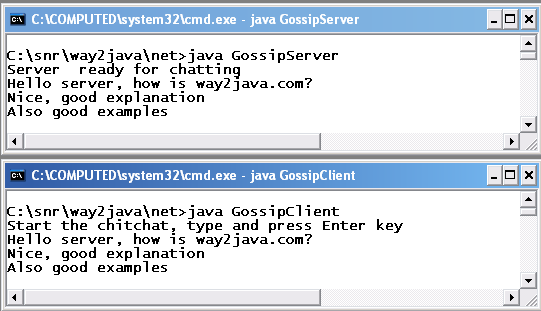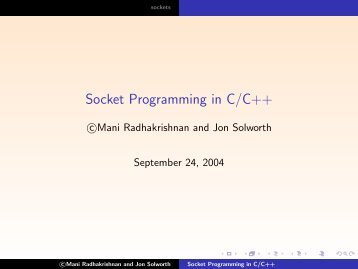
C++ is an object-oriented programming language that was first developed by Bjarne Stroustrup. It was originally created to be an extension of the C language, which is a middle-level language, and these roots are still present today. C++ can be developed in the object-oriented style, or in the C-style, making it a truly hybrid language.

This path will take you from the very basics of programming using C++ and will vault you forward into creating rich applications for the Windows operating system. Complete Boa Constrictor Vin Russo Pdf Editor. You can also create platform independent desktop applications in C++ using either the Qt or Cinder frameworks.
Two Simple Network Examples in Java and C++ The Network Example in Java: Client-Server Pair, Both Are Imlemented in One Applet. Patch Ttsystem 9 06108.
Those courses are in our library but not listed on this path. Description C++ is a general purpose programming language that is used by millions of developers. It offers a powerful combination of performance and abstraction that other languages don’t have. You can use C++ to write different kinds of applications for a variety of platforms.
In this course, I’ll cover basics of language syntax – declaring variables, classes, building expressions using operators and functions – and work up to templates, pointers, const, and polymorphism. I’ll be using the principles of “modern C++” as much as possible, relying on the Standard Library and using idioms like Resource Acquisition is Initialization to reduce the effort involved in memory management. Some people are scared of C++, but I’ll show you how to approach the language without fear. Description Good C++ developers know more than just the syntax of the language: they know the libraries that come with it, and they know when to use a particular feature.
In this sequel to C++ Fundamentals, you'll learn those things. A quick overview of the Standard Library will provide you with collections, algorithms to work with collections, and string manipulation capabilities, as well as signposts to more Standard Library capabilities. Then perhaps the most important C++11 language change, lambdas, are explained and put in context. Finally exceptions, a powerful error-handling technique, are introduced and you will see their significance for resource and memory management. With the modern C++ foundations complete, the last module of this course goes back in time to the sorts of syntax and idioms you're likely to find in older code, including typedefs, function pointers, void pointers, and C-style strings and arrays.
Download Excel Knjiga. Modern C++ developers must cope with legacy code and this module will show you how. Description Writing unit tests is a big part of being a good software developer.
Unfortunately, unit testing in C++ is far from being trivial and good unit testing frameworks are hard to find. In this course, C++ Unit Testing Fundamentals Using Catch, you will learn how to write robust unit tests using Catch, a simple-to-use, yet flexible and powerful unit testing framework for C++. You will learn what makes Catch different from other xUnit frameworks, and how it can be used to write unit tests for your C++ code. You will also get to see how to run Catch from the command line, how to use test fixtures, and how to create maintainable tests. When you're finished with this course, you will have a foundational knowledge of Catch and unit testing in C++ that would help you create better, cleaner C++ code.
Description This course is about the practical application of the modern C++ language. It's about using (and creating) modern C++ libraries. You're going to learn how to use a modern C++ style of programming. You will see how it helps to turn C++ into a modern language that's intuitive and elegant. This course covers the essential skills needed by any C++ developer to handle resources and write efficient classes that work well with standard containers. You will also learn all about the standard smart pointers, containers, strings, and regular expressions.